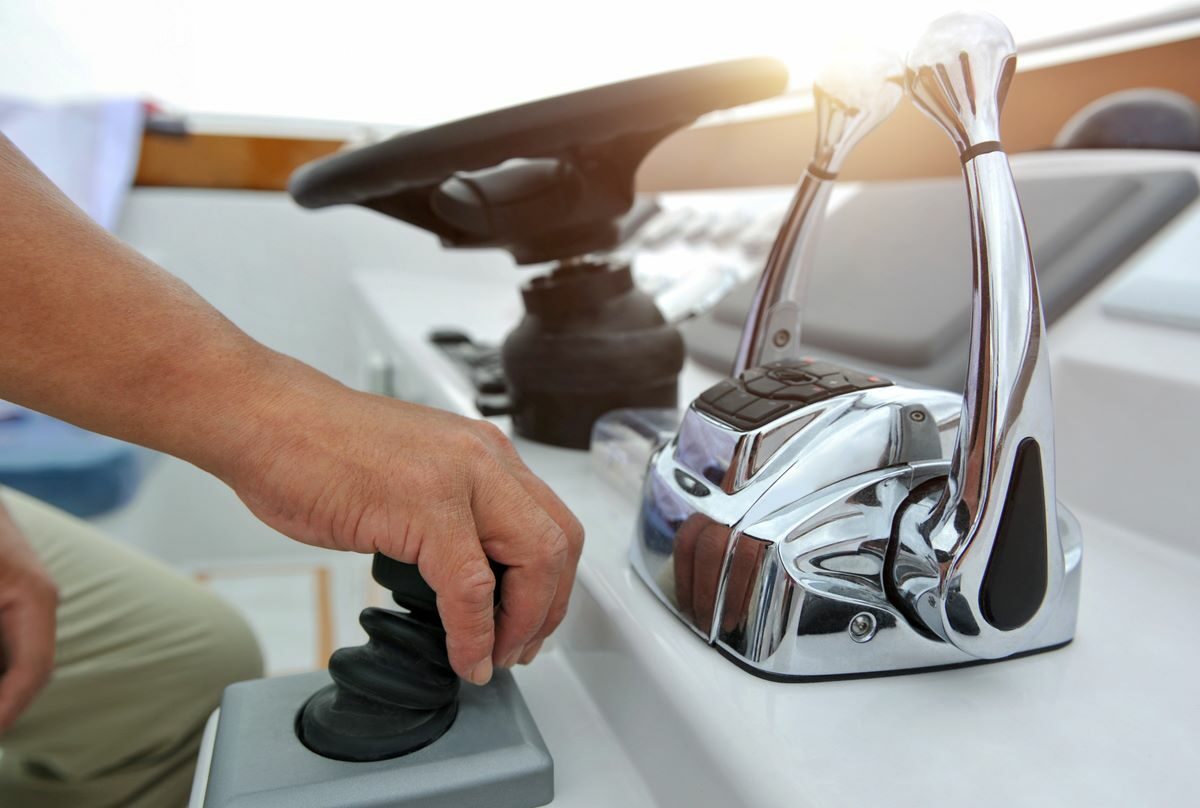What Are Engine Hours on a Boat?

As a boat owner, familiarizing yourself with the ins and outs of your vessel’s mechanics is crucial to ensure smooth sailing. One important but often overlooked aspect of boat maintenance is keeping track of engine hours, which is a measurement that can have quite an impact on your boat engine longevity.
Whether you’re a seasoned boater or setting sail for the first time, understanding engine hours’ role in your boat engine health can make a significant difference in your experience. This guide from the friendly team at KO Storage explains the importance of tracking boat engine hours and provides general boat maintenance tips to keep in mind as you get ready to hit the water.
Frequently Asked Questions About Boat Engine Hours
Engine hours refer to the total time an engine has been running. Unlike a car’s odometer, which measures miles driven, boats use engine hours as a key metric to gauge usage. This measurement helps you understand the wear and tear on the engine, similar to how mileage works for cars. It’s a straightforward concept. If your boat’s engine has been on for 100 hours, then it has accumulated 100 engine hours.
Most modern boats are equipped with an automatic tracker that helps with managing boat engine hours. This meter, typically found on the boat’s dashboard, provides a direct reading of how long the engine has been operational.
The number of engine hours considered normal can vary widely depending on the type of boat, its usage, and the maintenance habits of the owner. On average, a recreational boat might accumulate about 50 to 100 engine hours per year. For commercial boats or frequently used fishing boats, this number can be significantly higher.
When buying a used boat, it’s helpful to compare the engine hours with the age of the boat. A boat with very low engine hours for its age might indicate it hasn’t been used much, which isn’t always a positive sign as it could be a sign of marine engine maintenance issues. Conversely, a boat with high engine hours that has been well maintained can still be a good purchase.
Check the Hour Meter:
Most modern boats have an hour meter on the engine dashboard or control panel. This digital or analog display shows the total number of hours the engine has been used.
Look for a Data Display:
Some boats have multifunction displays or gauges that show engine hours as part of a broader set of data, including speed, fuel consumption, and more.
Consult the Engine’s Manual:
The engine manual often provides information on where to find the hour meter or how to check the engine hours, especially if it’s part of a more complex electronic system.
Use a Diagnostic Tool:
For some engines, you may need a diagnostic tool or software to read the engine hours, especially if it’s equipped with advanced electronics.
Engine Running Time:
Engine hours are calculated based on the total time the engine has been running. The hour meter starts counting when the engine is turned on and stops when it is turned off.
Internal Tracking Systems:
Many modern engines have internal computer systems that track running time. These systems log hours as part of their overall monitoring and diagnostics.
Manual Hour Meters:
In older boats or simpler setups, hour meters might be mechanical or electrical devices directly connected to the engine that count the time the engine is running.
Automatic Logging:
Some engines and onboard systems have automatic logging features that track engine hours and other metrics for maintenance and performance monitoring.
Impact on Boat Maintenance
Engine hours play a critical role in determining your boat’s maintenance schedule. Regular maintenance tasks such as oil changes and filter replacements are often scheduled based on engine hours rather than calendar time. For instance, it’s common to see maintenance intervals like “every 100 hours” in your boat’s manual, as this ensures you perform these essential tasks on time to extend your boat engine’s life span.
Engine Hours and Boat Resale Value
Boat engine hours are important because they impact resale value. Potential buyers often use engine hours as a key indicator of the boat’s overall condition and how much life it has left. Boats with lower engine hours are generally more attractive to buyers, as they suggest less wear and longer potential service time.
However, high engine hours aren’t necessarily a deal-breaker if the boat has been properly cared for. Documentation of regular maintenance and tune-ups can offset concerns about high engine hours and boat resale value, as most buyers appreciate boats with detailed service records.
How To Improve Boat Engine Health
There are some things you can do to keep your boat engine healthy and maximize its life span. Consider the following boat maintenance tips:
- Regular checkups. Stick to the maintenance schedule recommended by the manufacturer based on engine hours.
- Quality fuel and oil. Use high-quality fuel and oil to ensure optimal engine performance and longevity.
- Proper winterization. If you store your boat during the offseason, make sure to winterize it properly to avoid damage.
- Avoid overloading. Don’t exceed the recommended load capacity for your boat, as overloading can strain the engine.
- Smooth operation. Avoid running the engine at full throttle for extended periods. Operate within the recommended RPM ranges to reduce stress on the engine.
Rent Boat Storage From KO Storage
When it comes to anchoring your boat away until your next adventure, proper storage is essential to maintain its condition. KO Storage offers secure, convenient, and affordable boat storage solutions you can depend on. With various sizes and options available, you can find the perfect storage unit to protect your boat from the elements and keep it ready for your next journey. Find the closest KO Storage facility to you or read our FAQ to get started today!